Matthew L Weiss
Developing a Series of AI Challenges for the United States Department of the Air Force
Jul 14, 2022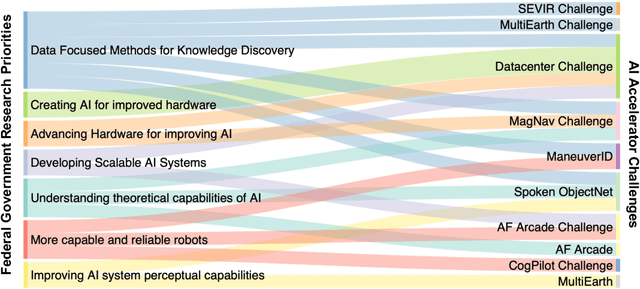
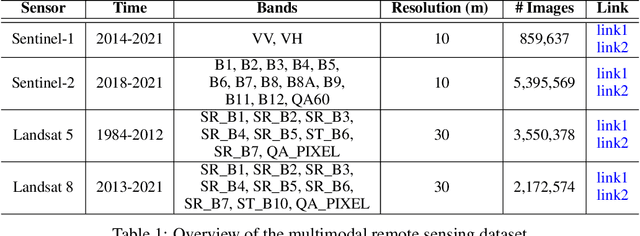


Abstract:Through a series of federal initiatives and orders, the U.S. Government has been making a concerted effort to ensure American leadership in AI. These broad strategy documents have influenced organizations such as the United States Department of the Air Force (DAF). The DAF-MIT AI Accelerator is an initiative between the DAF and MIT to bridge the gap between AI researchers and DAF mission requirements. Several projects supported by the DAF-MIT AI Accelerator are developing public challenge problems that address numerous Federal AI research priorities. These challenges target priorities by making large, AI-ready datasets publicly available, incentivizing open-source solutions, and creating a demand signal for dual use technologies that can stimulate further research. In this article, we describe these public challenges being developed and how their application contributes to scientific advances.
The MIT Supercloud Dataset
Aug 04, 2021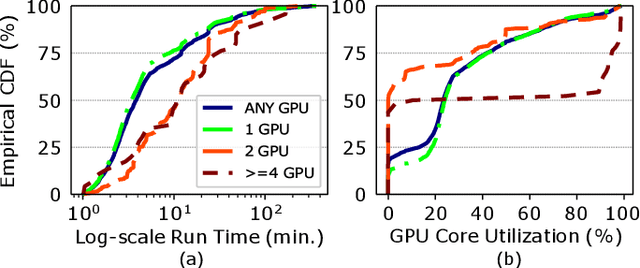
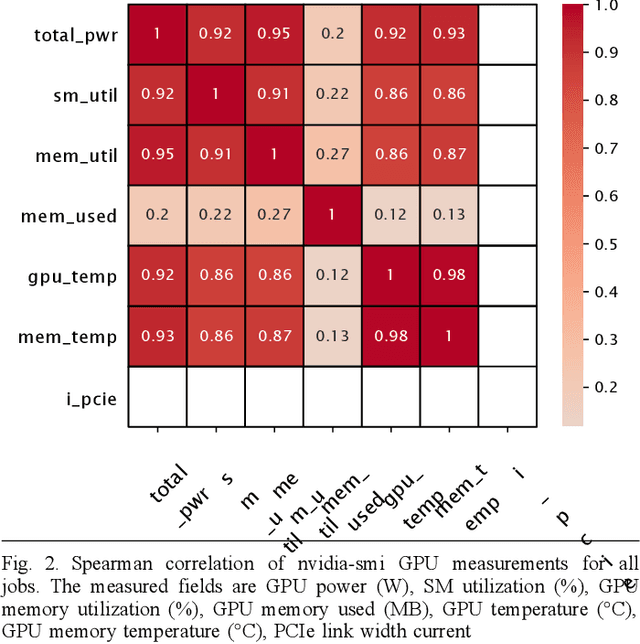
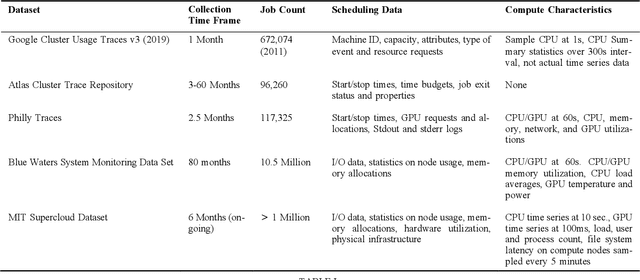

Abstract:Artificial intelligence (AI) and Machine learning (ML) workloads are an increasingly larger share of the compute workloads in traditional High-Performance Computing (HPC) centers and commercial cloud systems. This has led to changes in deployment approaches of HPC clusters and the commercial cloud, as well as a new focus on approaches to optimized resource usage, allocations and deployment of new AI frame- works, and capabilities such as Jupyter notebooks to enable rapid prototyping and deployment. With these changes, there is a need to better understand cluster/datacenter operations with the goal of developing improved scheduling policies, identifying inefficiencies in resource utilization, energy/power consumption, failure prediction, and identifying policy violations. In this paper we introduce the MIT Supercloud Dataset which aims to foster innovative AI/ML approaches to the analysis of large scale HPC and datacenter/cloud operations. We provide detailed monitoring logs from the MIT Supercloud system, which include CPU and GPU usage by jobs, memory usage, file system logs, and physical monitoring data. This paper discusses the details of the dataset, collection methodology, data availability, and discusses potential challenge problems being developed using this data. Datasets and future challenge announcements will be available via https://dcc.mit.edu.
 Add to Chrome
Add to Chrome Add to Firefox
Add to Firefox Add to Edge
Add to Edge